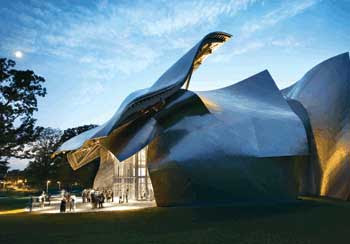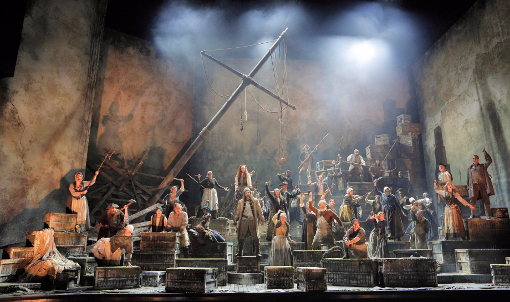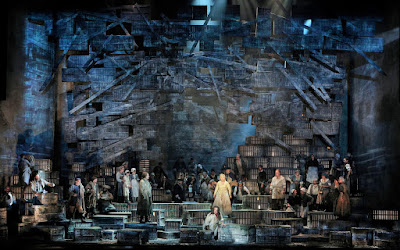Elizabeth – This past Sunday we had our first trip to Bard, but certainly not our last, for the final performance of the world premiere of Ethel Smyth’s opera, The Wreckers. An intriguing story set on the Cornish coast in the second half of the 18th century, Smyth’s opera portrays a deeply religious community, fanatical almost, and their sense of righteousness in “wrecking”: when ships carrying goods are spotted, the town turns off their lights and douse their coastal beacons, ensuring the ship will be wrecked upon their rocky coast. The villagers, led by their pastor, plunder the ships and murder those aboard. Not only do they feel the ships are sent to them from God and are his way of providing for them, but they feel they are doing God’s work.
 |
| Richard B Fisher Center for Performing Arts |
Shawn – I had never been to Bard College before last Sunday. Nor had I ever seen the Frank Gehry designed Richard B Fisher Center for Performing Arts there. It looks like a giant cybernetic insect vulva. And I mean that in the best possible way as it added to the experience greatly and strangely felt very apt. A line of tiny people, leaving the sunlight and entering the womb of some gigantic metallic prehistoric HR Giger nightmare half submerged in the earth to view its unborn and developing fetus.
 This is not to say I didn’t like The Wreckers at all. There were moments, especially the choral sections, which grabbed me completely. Chorus master James Bagwell is to be greatly commended.
This is not to say I didn’t like The Wreckers at all. There were moments, especially the choral sections, which grabbed me completely. Chorus master James Bagwell is to be greatly commended. 





Leave a Reply